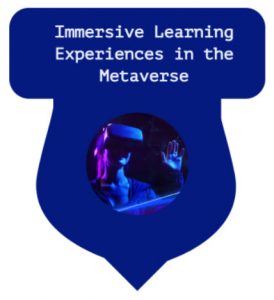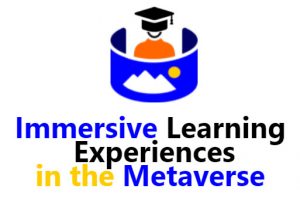

Category Archives: Uncategorized
GUINEVERE DISCLAIMERS AND PRIVACY POLICY
GUINEVERE DISCLAIMERS AND PRIVACY POLICY
We value our relationship with our community and your privacy. We have updated our Privacy Policy to increase transparency and comply with the European Union data protection law known as the General Data Protection Regulation (GDPR), which went into effect on May 25, 2018. We ask you to read our policies in full and provide your consent:
- we provide details about the types of data that we collect
- the ways in which we use it
- and the measures we take to keep your data safe.
Thank you for being part of the GUINEVERE project!
Click here to watch our Privacy Policy, Click here to opt in.
The GUINEVERE Team
Privacy on the Guinevere Virtual World
For the GUINEVERE Virtual World a personal account is needed. This account needs to be created on our web portal: http://world.guinevereproject.eu:8002/wifi/user/account/
During the sign up process we collect your first name, last name and password; the latter will be safely encrypted in our database. We never require you to provide your real name as a username and you are free to choose any name. Your email address is optional; this is not needed for creating the account. This is only used when a ‘forgot password’ request is sent by the user, through our web portal.
If you provide us with your email address and then later decide you’d like us to delete it from our records, just let us know by sending us an email at info at 3dles dot com, and we’d be happy to do so. We do not use your email to send future email or for any other purpose.
The account needs approval by the Virtual World manager before a user can log into the virtual world.
In the GUINEVERE Virtual World, we intend to collect information for educational research purposes only.
We log or collect:
- The username, IP, User ID number, date and time when a user enters the virtual world.
- The preferred language the user wants to use.
- The birth year of the user.
- What objects the user has clicked on, sat on or walked through, including date and time.
- What games the user has played and what score the user reached, including date and time.
- The conversation the user has done with other users or with chat bots, using text chat.
- Observation of avatar interaction in the virtual world that may be video recorded.
At your first log in on our Guinevere Virtual World server, you will see a pop-up on your screen that will ask you to agree to the privacy terms mentioned above. If you do not agree, you will still have access to all islands but your personal data will not be collected. By accepting the terms you will provide consent to your participation in the educational research mentioned above.
You are free to withdraw from the study at any time. At every stage, your name will remain confidential. The data will be kept securely and will be used for research purposes only.
Our Commitment to Data Security
To prevent unauthorized access, maintain data accuracy, and ensure the correct use of information, we have put in place appropriate physical, electronic, and administrative procedures to safeguard and secure the information we collect online.
Disclaimers
Any support groups, peer supporters, forum, or support group networks mentioned or described by the GUINEVERE project on our website or within our virtual world and Minecraft are for educational and informational purposes only.
The GUINEVERE project does not endorse or recommend commercial or non-commercial products, services, processes or manufacturers. We assume no liability whatsoever for the use or contents of any product or service mentioned.
All product names, logos, and brands are property of their respective owners. All company, product and service names used in this website and virtual worlds are for identification purposes only. Use of these names, logos, and brands does not imply endorsement.
The GUINEVERE project is not responsible for the contents of any “off-site” Internet information referenced by or linked to the GUINEVERE project internet site.
EU FUNDED GUINEVERE PROJECT (2017-2019) This project has been funded with support from the European Commission (Project number:2017-1-UK01-KA201-036783). The information on this website reflects the views only of the authors, and the Commission cannot be held responsible for any use which may be made of the information contained therein.
An introduction to Club Minecraft Mini Games
An introduction to Club Minecraft Mini Games
Date: 02 February 2018
Time: 7:30 pm – 8:30 pm GMT
Recording of the session
Speaker: Matthew Ward, Founder of Club Minecraft
We are happy to present our first Guinevere Project Webinar with Matthew Ward, founder of Club Minecraft.
Club Minecraft hosts Minecraft LAN parties each month on Saturdays from 10am-4pm and is a great place for kids to meet and play with each other and learn from one another. Club Minecraft follows an open creative policy and allows kids to gain extensive modification and powerful control in game, along with a multi-world feature where players can choose from different worlds, and game types, to play in depending on what they want to do. Players are free to build, play, and explore in custom maps no player will ever see online. Featuring unique structures, tasks and mini-games built by the staff.
Puzzles – test your memory with our mazes
Creative – take part in one of our build challenges
Parkour – be challenged by jumping puzzles
Redstone – programmable tiles allow for myriad possibilities.
We are happy to present our first Guinevere Project Webinar with Matthew Ward, founder of Club Minecraft.
Club Minecraft hosts Minecraft LAN parties each month on Saturdays from 10am-4pm and is a great place for kids to meet and play with each other and learn from one another. Club Minecraft follows an open creative policy and allows kids to gain extensive modification and powerful control in game, along with a multi-world feature where players can choose from different worlds, and game types, to play in depending on what they want to do. Players are free to build, play, and explore in custom maps no player will ever see online. Featuring unique structures, tasks and mini-games built by the staff.
Puzzles – test your memory with our mazes
Creative – take part in one of our build challenges
Parkour – be challenged by jumping puzzles
Redstone – programmable tiles allow for myriad possibilities.
Using Minecraft in Storytelling
Webinar revisited
This webinar was held by Chris Bailey, Sheffield University, UK on behalf of the CAMELOT Project
13th March, 10.30 – 11.30 am GMT
To watch the recording follow this link
Abstract: Storying in and around a Minecraft Community
Recent work around the use of Virtual Worlds in educational contexts has conceptualised literacies as communal processes, whilst considering complex notions of collaboration through participants’ multiplicity of presence. Screen-based virtual worlds can also be viewed as multimodal texts, constructed by multiple players. Shaped by these ideas, this presentation draws upon data collected during an extra-curricular Minecraft club for ten and eleven year old children, exploring the ways in which the players take up the narrative opportunities offered by the game, as they collaborate to build a ‚virtual community‘.
With a focus on the literacy events and artefacts generated in and around a virtual space, this presentation describes how this established, self-directed group of children used this environment to compose and create improvised stories. It explores how the literacies constructed through their interactions were influenced by resources drawn from their wider experiences, shaped by their experiments with in-game multimodal creation. The children’s interactions enabled them to form their own individual and collective textual landscapes, through a set of emotionally charged manifestations of literacy, played out in the hybrid virtual/material worlds.
Biography
Chris Bailey is a PhD student at Sheffield Hallam University. His PhD study is titled: ‘Investigating the Lived Experience of a Virtual World After School Club‘. This research stems from his previous work as a primary school teacher, where he taught across the primary age ranges. His research explores the ways in which children make meaning in and around digital environments, with a particular interest in the informal learning opportunities offered by social, digitally mediated gaming. He runs the Children and Video Games multidisciplinary discussion group at Sheffield Hallam University and blogs regularly about his work
